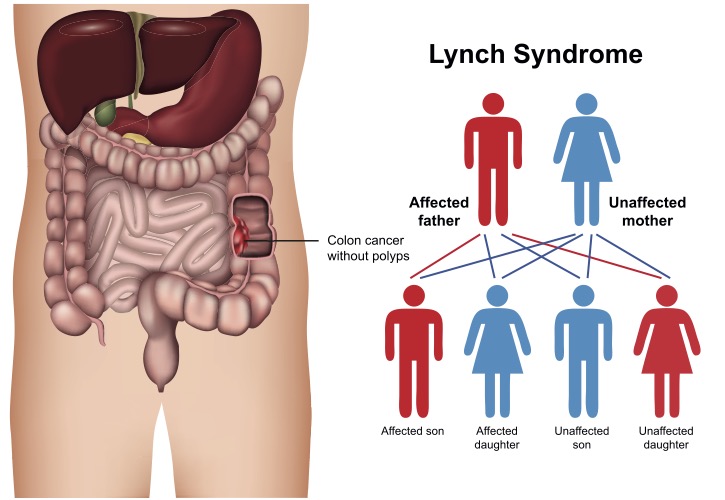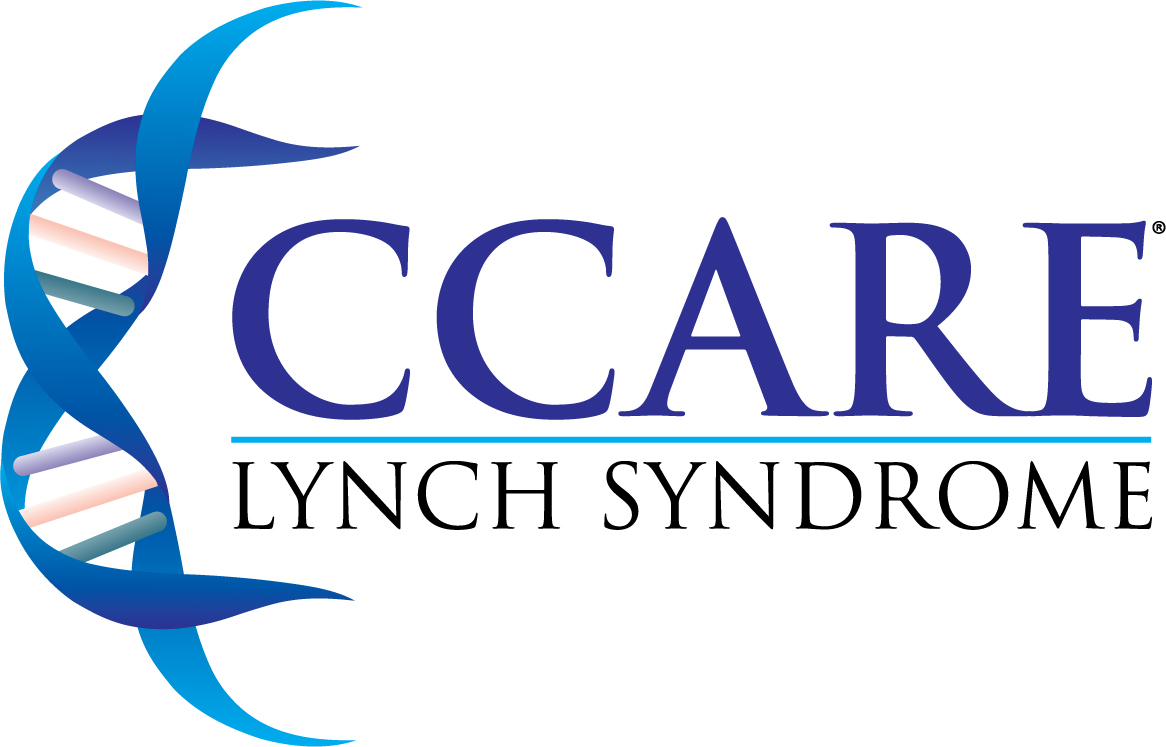Information for Families
Lynch Syndrome is a genetic disease that dramatically increases the risk of colon and uterine cancer. It may also increase the risk of ovarian, stomach, brain, intestine, kidney, biliary tract and skin cancers.
This disease is usually inherited from one of our parents and can be passed down to our children.

Why is it called Lynch Syndrome?
Dr. Henry Lynch was a physician and geneticist who studied families with multiple cancers. He was particular perplexed with some of these “Cancer Families” who had many cases of colon cancer with people in the 20s and 30s that did not also have many polyps. For at that time the only hereditary cause of colon cancer in young adults was Familial Adenomatous Polyposis or (FAP). But in that disease people would have numerous polyps, sometimes hundreds. For this reason, the term hereditary non-polyposis colorectal cancer (HNPCC) was used.
He joined other leading experts in creating the Amsterdam and Bethesda Guidelines for identification of HNPCC. The Key characteristics are 3 affected family members with an colorectal cancer, 2 successive generations, one person with cancer before the age of 50, and FAP was excluded.
He also discovered that these same cancer families with colon cancer had a significant increase in other cancers - especially those of the uterus and ovaries. Because this syndrome was not just associated with colorectal cancers and it did not sense to call a person with just uterine or ovarian cancer hereditary non-polyposis colon cancer if they did not also have colorectal cancer. The leading researchers realized they had to call HNPCC something else. To honor Dr. Henry Lynch for his tireless work, it was changed to Lynch Syndrome
Knowing about Lynch Syndrome is important for the patient and family to prevent future cancers. Our efforts are focused on diagnosing these cancers at the earliest stage. This prevents death and disability from the cancers or its treatment.
These recommendations are based on a review of current published medical literature. You should discuss individual screening with your personal physician. A more detailed review of the screening process is available in the physician section on this website.
Inheriting Traits
We inherit one gene from each of our biological parents. Certain traits, like blue eyes, are called recessive, since they need two genes to occur. Other traits like brown eyes are called dominant, since they will be displayed with only one gene. Lynch Syndrome is a dominant gene. If a person has Lynch Syndrome, they have a 50% chance of passing it on to their children.






